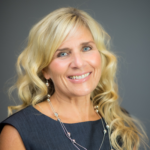July 1, 2021
By Michelle Pelletier Marshall, Global AgInvesting Media
For SLM Partners (SLM), an asset manager founded in 2009, there is no other way to invest in agriculture but through ecological farming and forestry in an effort to restore natural capital. The opportunities afforded in natural real assets – portfolio diversification, income yield, and hedge against inflation – have served their clients well and seen them grow to manage funds across three continents with US$210 million in assets.
Running the gamut from grass-fed beef cattle in Australia to sustainable forestry in Ireland to organic farming in the U.S., the underlying foundation in choosing all of its investments is to generate positive impacts on soil health, water, biodiversity, carbon storage, and local communities. With that, SLM is proactive in utilizing a standard impact measurement system, one that is verified and quantified and illustrated in its just-released SLM Partners’ Impact Report 2020. Additionally, the company is a member of the Global Impact Investment Network and a signatory of the United Nations Principles for Responsible Investing (UN PRI).
With an industry on fire with talk of sustainability, regenerative agriculture, carbon capture, and climate change, GAI News reached out to Brad Keith, a principal at SLM, to get more details on these driving forces in the sector from this pioneering asset manager that has set its compass on impact investing for more than a decade.
Brad is charged with managing and growing the company’s organic and regenerative farmland investment strategies in the U.S. Prior to joining SLM, he spent nine years with the Harvard University endowment, helping to manage its agricultural and timberland investment portfolio.
GAI News caught up with Brad at SLM’s office in New York City.
1). Consumer demand for organically-grown goods continues to show double-digit growth, and sales, in the U.S. alone, jumped a record 12.4 percent to $61.9 billion in 2020. Where do you start with advising on investments in this market, and how does the organic investment outlook look from your view?
Our mission is to scale up ecological and regenerative land management approaches that are commercially proven but not yet mainstream. For investors, we believe the industry is currently in the right place to provide an excellent risk/reward over a long-term horizon. Organic is a part of this in today’s market as consumers have shown year after year their willingness to support organic certified products at the retail level – the 12.4 percent growth in 2020 was impressive, and just part of a +9 percent CAGR over the last 10 years. We are seeing strong price premiums for certain organic crops, sometimes 50 percent to 100 percent above conventional prices, which can lead to higher profitability for farmers that know how to maintain yields in organic systems, as well as for the capital sources that have the patience to build these systems right. Longer term, the benefits that come from ecological management – water holding capacity, biologically active soils, biodiversity, preservation and building of top soil to name a few – serve to mitigate risk, reduce production costs and enhance the return profile.
2). I know you have just started with your strategy for this, but what is the perspective when examining investment potential for organic specialty crops, both in the U.S. and abroad?
Our research shows that there is substantial market appetite for additional organic/regenerative products in certain crops. This, combined with a variety of farming approaches that, while not new, have yet to be widely adopted, forms the core of our thesis and is aligned with our company mission. We’ve seen amazing farmers produce outsized margins both through product pricing and cost of production reductions. Our strategy, as we’ve done in other regions/crops, is based on putting farmers first – identify and partner with great farmers, set up long-term partnering arrangements that are flexible in nature (as opposed to a market dominated by shorter horizon fixed arrangements), and then work hard to stay out of the way. Investors get a superior risk adjusted return, farmers get access to further scale with long term certainty, and we all benefit from the positive environment benefits.
3). Please explain how SLM integrates impact into the core of its investment strategies, and how this sets SLM apart from other asset managers.
The first point is that we only invest in ecological farming systems that produce positive environmental impacts. We seek to invest alongside farmers who are proven innovators, who are trying something different and making it work. If you look, there are amazing organic and regenerative farmers across the U.S. who are doing this well and are in a position to scale their operations further. This has been at the core of our mission since our establishment in 2009.
Secondly, we collect data to internally track and publicly report on the impacts of our strategies. We layer on specific key performance metrics that are correlated with many different benefits – metrics like soil organic matter content, a single metric that, if maintained or increased, leads to many different positive outcomes from both a financial and environmental perspective. We try to solve for a set of metrics that are both comprehensive and also minimally intrusive for a specific operation. We collect data at the property-level, use third party verifiers wherever possible, and present this data to investors using globally-recognized impact reporting frameworks.
4). How is it that SLM measures impact across its five major investment themes – soil, biodiversity, water, climate, and society – and utilizes this data in its decision-making?
Given the breadth of our operations, from forestry in Ireland, to holistic grazing in Australia, to organics in the U.S. Midwest – one size doesn’t fit all. We work hard to find metrics in each of our five themes that fit the ecosystems and businesses we’re operating. But as a company we apply a consistent approach and roll up data at a global level as much as possible. The starting point is identifying and gathering impact data at the farm and forest level relevant to individual land management strategies. Where possible, the collection of this data and related analysis is undertaken by external organizations, with the skills and qualifications to do so. We also work with third party certification bodies where this is relevant, for example for organic certification or forestry certification schemes.
The next step is to converge and align this data with key impact and sustainability indicators within accepted reporting methodologies and taxonomy standards. We use two high-level frameworks: the Global Impact Investing Network’s (GIIN) IRIS+ impact accounting system, and the UN Sustainable Development Goals (SDGs). We currently use 30 IRIS indicators to assess the impact of our strategies. These are matched to our key impact themes and aligned to relevant SDGs. Finally, we ensure that our impact reporting processes – and the underlying strategies – are consistent with high-level regulations and policy initiatives, such as the UN Principles for Responsible Investing.
5). Your latest impact report for 2020 has been released. What are the top three key findings?
We have managed to achieve scale and have an impact on a large area of land. In total, we manage 1,150,000 acres (or 465,000 hectares) in Australia, the U.S., and Europe. All of our investments are in ecological farming or forestry systems. One hundred percent of our cropland is organic certified or in organic transition; 100 percent of our cattle are raised on pasture using a regenerative grazing system; 67 percent of our forests are managed according to continuous cover forestry (as opposed to clear cutting) now; and 100 percent of these forests will be managed according to continuous cover forestry within the next five years. We’re proud of the GHG sequestration achieved across our businesses. For example, in Australia we have generated and sold more than 1.3 million carbon credits (tons of CO2) over the last five years through regenerating native woodland. In the U.S., a case study on one of our organic farmers in Illinois shows that over an initial 10-year horizon ~1.45 tons of CO2 per acre per year will be stored under the new management practices. These examples have been achieved in tandem with maintaining the profitability of the core farming businesses, which is key in addressing the permanence issue related to soil carbon.
We’re excited to publish our first report and look forward to furthering our efforts in reports to come for many years.
ABOUT BRAD KEITH
Brad Keith is a principal of SLM Partners and leads all business activities for North America. He is focused on managing and growing the company’s organic and regenerative farmland investment strategies in the U.S.
 Previously he spent nine years with the Harvard University endowment, helping to manage its agricultural and timberland investment portfolio. He also had direct responsibility for a large portfolio of agriculture investments in the U.S., Australia, and New Zealand and sat on the boards of companies globally. Prior to his work at Harvard, Brad spent 10 years as a consultant, analyst, and auditor in the commercial real estate industry at PwC and Merrill Lynch Capital.
Previously he spent nine years with the Harvard University endowment, helping to manage its agricultural and timberland investment portfolio. He also had direct responsibility for a large portfolio of agriculture investments in the U.S., Australia, and New Zealand and sat on the boards of companies globally. Prior to his work at Harvard, Brad spent 10 years as a consultant, analyst, and auditor in the commercial real estate industry at PwC and Merrill Lynch Capital.
Brad is from the New York City area originally. He earned a BA in Business and History from Skidmore College and completed the Advanced Management Program at Dartmouth. He has completed numerous advanced education programs focused on agriculture with Harvard and UC Davis. Brad earned his CPA license in Massachusetts.
 – Michelle Pelletier Marshall is contributing editor and author for HighQuest Partners’ GAI News and Oilseed & Grain News, and managing editor for its WIA Today blog. Additionally, she is the company’s PR/Media Manager. She can be reached at marshall@highquestpartners.com.
– Michelle Pelletier Marshall is contributing editor and author for HighQuest Partners’ GAI News and Oilseed & Grain News, and managing editor for its WIA Today blog. Additionally, she is the company’s PR/Media Manager. She can be reached at marshall@highquestpartners.com.

Let GAI News inform your engagement in the agriculture sector.
GAI News provides crucial and timely news and insight to help you stay ahead of critical agricultural trends through free delivery of two weekly newsletters, Ag Investing Weekly and AgTech Intel.




